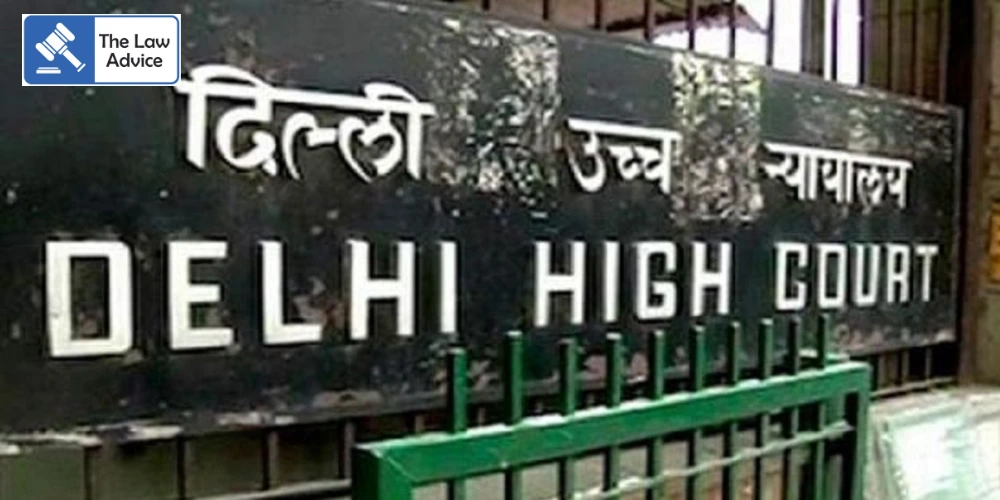New Delhi, August 2025
In a significant judgment reinforcing the rights of armed forces veterans, the Delhi High Court has upheld the order of the Armed Forces Tribunal (AFT) granting disability pension to a retired Air Force officer, holding that any disability arising during service is presumed to be attributable to or aggravated by military service unless the employer can clearly establish otherwise.
A Division Bench of Justice C. Hari Shankar and Justice Om Prakash Shukla ruled that Primary Hypertension, diagnosed after nearly four decades of service, could not be disregarded as non-service-related merely because its onset occurred at a “peace station.” The Court reiterated that the burden of disproving such presumption rests squarely on the employer—in this case, the Union of India—especially where no prior medical record or evidence exists to suggest pre-existing illness
Background of the Case
The respondent, Ex-Warrant Officer Om Prakash, served in the Indian Air Force for over 37 years and 11 months. At the time of his enrolment, he had submitted a self-declaration and undergone medical examination confirming that he was in sound health and not suffering from any disability, including hypertension.
During his service, he was later diagnosed with Primary Hypertension and released from service in a Low Medical Category. The Release Medical Board (RMB) assessed his disability at 30%, but opined that it was “not attributable to service,” reasoning that the onset occurred at a peace station without association with operational stress or strain.
However, the Commanding Officer’s certificate specifically recorded that the ailment was not due to any negligence or misconduct on the part of the officer.
Aggrieved by the RMB’s finding, Om Prakash approached the Armed Forces Tribunal (AFT), which directed grant of disability pension, holding that the disease had arisen during his long tenure of service.
Challenging this order, the Union of India filed a writ petition before the Delhi High Court, arguing that the AFT had committed a grave error by overlooking the RMB’s findings.
Arguments Before the Court
• Union of India’s Submission: The government contended that the RMB’s findings must be given primacy since it was a statutory medical board. It was emphasized that the onset of hypertension at a peace station indicated no causal link with stressful postings or field conditions.
• Respondent’s Submission: The retired officer, through counsel, countered that he had rendered nearly 38 years of dedicated service before the diagnosis, and there was no evidence of pre-existing ailment at entry. The disability was duly quantified at 30% by the RMB itself, and the Commanding Officer’s certificate negated any negligence. Therefore, the presumption of service-attributability must apply.
Court’s Findings
The High Court sided with the respondent, observing:
1. Presumption of Fitness at Entry: A member of the armed forces is presumed to be in sound health at the time of entry into service unless a disability is recorded at that stage. In Om Prakash’s case, no such disability was noted.
2. Burden on Employer: Once a disability arises during service, the burden shifts to the employer to prove that it was not attributable to or aggravated by service. The RMB’s observation that hypertension began at a peace station was found insufficient, as it failed to specify any independent or alternative cause for the condition.
3. Commanding Officer’s Certification: The certification that the disability was not due to negligence or misconduct strengthened the presumption in the respondent’s favour.
4. Beneficial Nature of Disability Pension: Referring to the Supreme Court’s ruling in Bijender Singh v. Union of India, the Bench reiterated that disability pension provisions are beneficial legislation and must be construed liberally in favour of the soldier. The Court underlined that it is not for the soldier to prove the causal link between service and disease; rather, it is for the State to disprove it with cogent reasons.
The Bench concluded that the AFT had committed no error of law in granting disability pension to the respondent. Upholding the Tribunal’s order, the writ petition filed by the Union of India was dismissed.
“Disability pension is a beneficial provision and must be interpreted in favour of the soldier. The employer cannot rely on vague observations of the Medical Board to deny pensionary benefits, particularly when no prior record of disease exists,” the Court observed.
Case Details
• Case Name: Union of India & Ors. v. Ex-Warrant Officer Om Prakash (Retd.)
• Case No.: W.P.(C) 6188/2025
• Bench: Justice C. Hari Shankar & Justice Om Prakash Shukla
• Counsel for Petitioners: Vivek Sharma, SPC with Prerna Singh
• Counsel for Respondent: Manoj Kr. Gupta, Esha Mehrotra, and Devangana Shar
